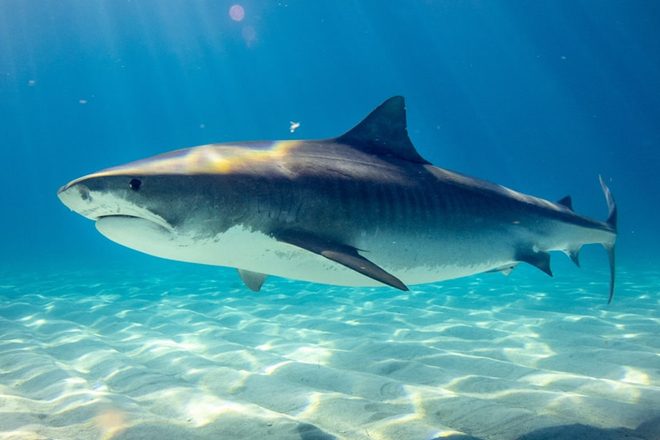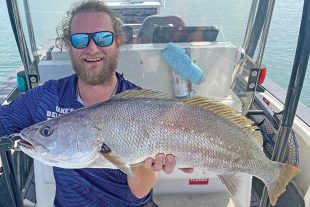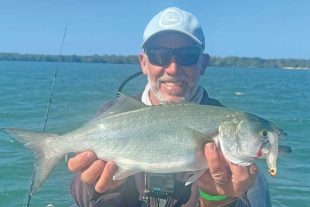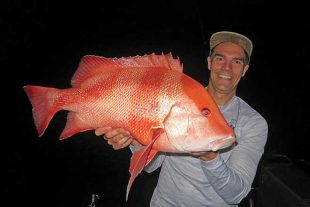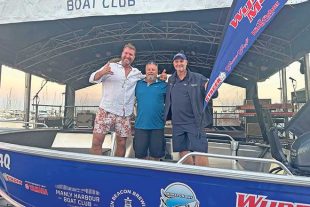FISHERIES Queensland supports ongoing research as part of Shark Control Program operations.
Several projects and a Scientific Working Group are examining the effectiveness of the program and investigating better ways of reducing the accidental capture of other marine animals (non-target species).
Review of shark control alternatives
The Queensland Government has committed $1 million a year to research and trialling alternatives that may be appropriate for Queensland. Trials will be informed by the Scientific Working Group and a review of alternatives undertaken by a leading engineering, environment and design consultancy.
The Queensland Shark Control Program: Review of alternative approaches report prepared by Cardno was released on 3 October 2019. The report details an assessment of a range of alternative approaches to shark safety and recommends what may be appropriate for trial in Queensland.
Summary of the report
- The review found major differences between the north and south of Queensland.
- In the north waves aren’t as large and the water is not as clear, whereas in the south there is bigger surf and clearer water.
- The review found that physical barriers may be appropriate for trial in the Great Barrier Reef area due a lack of ocean swell.
- In the south, drones could be used in partnership with surf life savers.
- The review specifically identifies significant challenges with catching and releasing sharks and the use of SMART drumlines in the Great Barrier Reef region
- Where SMART drumlines have been trialled in New South Wales and Western Australia, sharks are moved further offshore where there are no other water users. That won’t work in much of Queensland’s northern waters where many offshore areas are frequented by swimmers or other water users. This includes Magnetic Island, the Whitsundays, and the Keppels.
While a limited trial of SMART drumlines may be possible in southern areas, the review has found that replacing all drumlines with SMART drumlines would be impractical at this time. Read the Queensland Shark Control Program: Review of alternative approaches report.
Scientific working group
The Queensland Shark Control Program Scientific Working Group, established by the Queensland Government, brings together expertise in gear technology, species science and program management. The Group’s role is to advise DAF on scientific matters of relevance to the program and trials of alternatives.
Read the Terms of reference and members
Scientific working group meeting minutes
Follow the links to read the meeting minutes of the Shark Control Program Scientific Working Group.
Shark Control Program Research Strategy
This research strategy outlines priorities for the future to inform government investment and opportunities for other partners to contribute to answering key research questions. The strategy was developed in consultation with the Shark Control Program Scientific Working Group.
View the shark control program research strategy.
Current research projects
Fisheries Queensland’s ongoing commitment to collaborative research programs with academic institutions includes investigations into the hammerhead sharks of Southeastern Queensland, their nursery grounds, movement and interaction with the SCP.
Current programs include:
- Collection of shark DNA samples
- Providing shark samples and SCP data to researchers
- Read more about research into the prevalence and behaviour of sharks in Cid Harbour.
Equipment trials that involve utilising:
- an acoustic dolphin dissuasive device to limit the interactions of dolphins with baited drumlines
- stingray bait to limit the interactions of dolphins with baited drumlines
- circle hooks to reduce the incidence of non-target species catch
- green lights attached to shark nets to reduce turtle by-catch
Previous research projects
Queensland Large Shark Tagging Program
Led by Dr Jonathan Werry, this 5-year program (2009 – 2014) monitored movements of Queensland’s most dangerous shark species using satellite and acoustic tags.
Tiger Shark Research
Dr Bonnie Holmes collected biological information on tiger sharks in Queensland waters and monitored their movements using satellite tags.
Improving our technology
The SCP has explored advances in acoustic alarm/pinger technology for reducing entanglement of marine mammals.
Currently the SCP is trialling two different types of pingers on nets and selected drumlines in southern Queensland. We will continue to monitor the use of acoustic alarm/pinger technologies as a potentially effective method to reduce marine mammal entanglements.
 Bush 'n Beach Fishing Magazine Location reports & tips for fishing, boating, camping, kayaking, 4WDing in Queensland and Northern NSW
Bush 'n Beach Fishing Magazine Location reports & tips for fishing, boating, camping, kayaking, 4WDing in Queensland and Northern NSW

